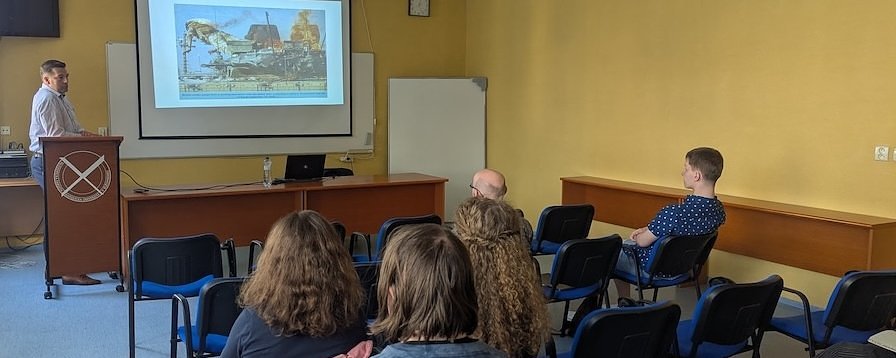On Peacekeeping Missions in Conflict Regions

On the last day of April, the second guest lecture of the Jean Monnet project European Perspectives on Climate, Conflict, and Migration (EUPECCOM) took place at the Faculty of Arts and Letters of CU. Tomáš Klopta, a former police officer and lawyer, came to share his experience in the field of international crisis management (peacekeeping) under the auspices of organizations such as the UN, OSCE, etc. with our students. At the beginning of his lecture, he introduced the basic objectives of such missions and briefly presented the history and areas in which the missions have been implemented and are still ongoing today. In the second part, Tomáš Klopta discussed his own experience, having participated in several missions himself, both in the aftermath of the war in Iraq, in the former Yugoslavia, and finally in the conflict zone of Donbas on the border between Ukraine and the Russian-backed separatist areas before the Russian full-scale invasion of Ukraine.
Especially valuable were his personal insights and stories from specific interventions or observation missions in which Tomáš Klopta participated. He used events from Ukraine to illustrate both the tasks he performed, but also to document the exploitation of related events by propagandists.
In the discussion that followed, he expressed scepticism about the resulting contribution of the missions. For the duration of the mission itself, participants assist and solve practical problems, mapping violations of agreements, etc., but in the end, he pointed out, these missions largely fail to prevent armed conflict or resolve complicated tensions in crisis areas.
This public lecture was organized within the framework of the project No. 101127675 European Perspectives on Climate, Conflict and Migration (EUPECCOM), carried out by a team from the Faculty of Arts and Letters, which was supported by the Erasmus+ Jean Monnet Actions in the field of Higher Education: Modules scheme. More information about the project: http://eupeccom.ku.sk
Funded by the European Union. Views and opinions expressed are however those of the author(s) only and do not necessarily reflect those of the European Union or the EACEA. Neither the European Union nor the granting authority can be held responsible for them.

